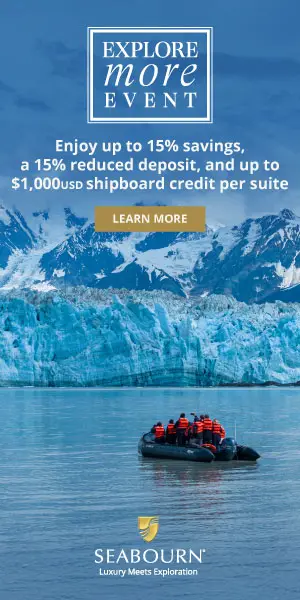8 Easy Ways Travel Advisors Can Engage in Responsible Travel
by Dori Saltzman
Combatting global warming. Enriching local communities in countries around the world. Leaving the places we visit better than we found them.
All noble goals, but also, oftentimes, overwhelming. And yet, travelers – and by extension, the travel advisors who work with them – have a responsibility to not only minimize their impact as they explore the world, but also to give back.
Travel Market Report spoke with three advisors who attended last month’s Tourism Cares’ Meaningful Travel Summit, to find out what steps they plan on taking to contribute to the goals of responsible tourism.
“We all have a responsibility,” said Andrey Zakharenko, owner of Always Travel, who emphasized that helping clients travel “better” is not about shaming anyone. “A lot of people just aren’t aware… We have to give our clients the knowledge we have about doing it better.”
“We’re starting small,” said Felicia Troy, an advisor with AAA Northeast, who said it’s easier to try and get a foothold first, especially when there’s so much else going on. “There’s just so much happening right now in the travel world, so doing something simple and easy to start… Whatever it is, try to take a step in the right direction. There’s no bad step if you have good intentions.”
Here are some of the ideas suggested by the travel advisors TMR spoke with.
- Choose “Caring” Suppliers
Whether you want to promote sustainability and help combat global warming or you’re interested in partnering with suppliers that promote diversity and inclusivity, travel advisors get to decide which suppliers they work with.
“Travel is tricky,” Christina Turrini, a travel consultant with Frosch, said. “As much as we want to say that there’s going to be no footprint that you leave behind, you inherently do. It’s about mitigating and lessening and making sure that it’s respectful and making sure that you are partnering with people that can make it better.”
“We can choose what tour companies we use,” said Troy. “We can choose what ways people travel. We can influence millions of travelers.”
Zakharenko agreed. “Travel advisors, we’re at the front lines of informing, educating and steering our clients to the right companies,” he said.
Choosing the “right” suppliers doesn’t have to mean cutting out all other suppliers. It simply means when the opportunity arises, advisors should feel empowered to steer a client toward a socially-responsible supplier or product. That might mean suggesting a four-start hotel you know is green-certified rather than one that’s not. Or an indigenously-owned local tour operator over a global operator with no connection to the land.
Not sure where to start finding ethically-minded suppliers? The three advisors TMR spoke with said, that’s part of why they attend Tourism Cares events.
“If I know that a supplier is here, I know that that’s a step in the right direction,” Turrini said. “The more information we know, the better it is.”
- Gift Thoughtfully
Many travel advisors gift their clients something small on a trip. Luggage tags, a bottle of wine, backpacks, these are just a few of the items commonly gifted by advisors.
But gifts can also be used to make the world greener or spread the word about organizations doing good work in destinations people are visiting.
Troy suggested giving clients reusable water bottles. For instance, clients going on a cruise. Tell them, “You don’t have to buy the case of water. You can bring your refillable water bottle and they have filtered water right on the ship,” she said.
Turrini said she makes a donation to Coral Gardeners, a coral reef restoration nonprofit in Moorea, every time she sends a client to Tahiti.
“Every Tahiti booking I do, I give a gift of coral from the ‘adopt a coral’ program. That’s a way to get them to learn about the organization and also support them,” she told TMR.
Another gifting idea? A carbon offset for your clients’ flights, which depending on the length of the flight can cost as little as $30 or $40.
- Socially-Responsible Packing Lists
Don’t want to gift your clients a reusable water bottle? That’s OK. Suggest they bring one instead.
Troy said those suggestions can have a domino effect.
“Now I’ve started their thought process… If I have 500 people travel within the month, that’s 500 people that might be thinking more about sustainability in the world, which then creates a big impact on wherever they’re traveling,” she said.
Another packing list suggestion all three advisors TMR spoke with said they make is reef-safe sunscreen, particularly to clients that are going on beach vacations.
- Pack for a Purpose
Have clients going to Aruba or Jamaica? What about Belize or Costa Rica? Or on safari in Kenya or South Africa? Tell them about Pack for a Purpose, an organization that helps travelers bring needed supplies to organizations all over the world.
It’s something Turrini told TMR she does whenever she can.
“It’s really amazing,” she said. “Bring a backpack and they will tell you what they need. Then they just drop it off at the participating hotel.”
- Suggest Public Transport for City Trips
Carrying a reusable water bottle isn’t as convenient as buying single-use plastic bottles, but Troy said it’s important that travel advisors point out less convenient, but more sustainable options. And that includes using public transport where available.
“How are you getting from A to B? … If somebody is going to Italy, do they need that private transfer from Rome to Naples or can they just take the train? They absolutely could take the train. It’s very easy. It’s that idea of getting people out of the mindset that they need something so convenient and individualized for them when there is something that’s easy that they can do and will help the environment as well. It’s challenging them to think for the greater good instead of just their personal convenience.”
Want to make it even easier for them? Include the specific public transport directions in their itinerary, pre-purchase train tickets, or gift them a one-day pass on the local bus system.
- Include Carbon Offsets in Your Quote
It’s standard procedure nowadays for most travel advisors to include the price of travel insurance with the total trip cost. Clients can choose to accept the quote or say no.
Advisors can do the same thing with carbon offsets.
Calculating the carbon offset for flights isn’t difficult. You can find an easy-to-use calculator here. And, if you use a carbon offset marketplace like South Pole’s, calculating the cost of offsetting your client’s flights is easy as well. You can even choose different projects to give them a choice of pricing. Include it in your quote and let them check a box if they’d like to proceed.
Zakharenko told TMR this is a priority for him and he’s trying to figure out the technology to make it automatic in his quotes so he doesn’t have to do it manually each time.
“Including the carbon footprint automatically. They can opt out of it, but it’s already there. They don’t have to do anything,” he said, speaking to how he believes that making it easy for the client makes it more likely they’ll opt in.
- Include a List of Non-Profits in Final Documentation
The easier something is, the more likely people are to participate. It’s why charities partner with stores to let customers round up a purchase. Or supermarkets have food bank “coupons” at checkout.
Many travelers would be interested in contributing to the destinations they’re visiting, but don’t have the time or inclination to do the research to find the right organizations.
Advisors can do that for them, then supply a list of vetted nonprofits as part of their final documentation.
“All throughout the years of travel, we’ve always focused on here’s information that talks about tipping culture, greeting customers, what you do and don’t do,” Zakharenko said. “I think we need to shift that to, this is what you can do to help this attraction, be it the Colosseum or Lake Tahoe. Here are the foundations you can give back to.”
If you’re not sure which nonprofits are legitimate, ask your supplier partners. Many of them are involved in the communities they bring guests to. Local tourist boards also often have that kind of insider information. Groups like Tourism Cares may be able to point you in the right direction, as well.
- Calculate Your Impact, Then Publish It
This isn’t about patting yourself on the back for a job well-done. This is about spreading the word that it can be done and it can be impactful.
“I want to measure so that at the end of the year, I can say, our clients and our organization contributed this much to this cause,” Zakharenko said.
Ask your clients to report back if they make a donation or offset their flights. Keep track of any donations or offsets you do on their behalf. Then at the end of the year, sum it up and send it out in a press release to your local papers. If you’re a member of a consortium or an independent contractor with a host agency, let them know so they can spread the word. Blog about it, put it up on a Facebook post, make an Instagram Reel.
Make the impact you and your clients are having on the world visible so that other advisors and travelers can see what’s possible. You might even attract new clients who want to work with someone they know cares.






















